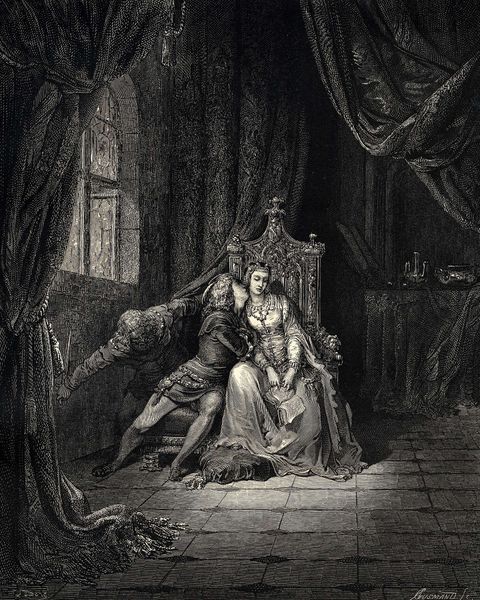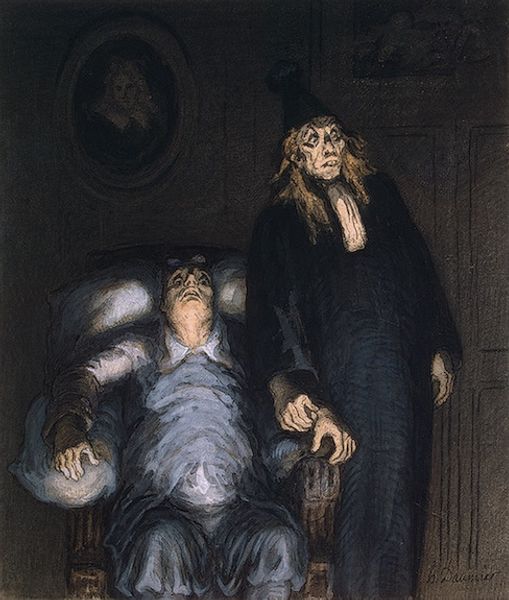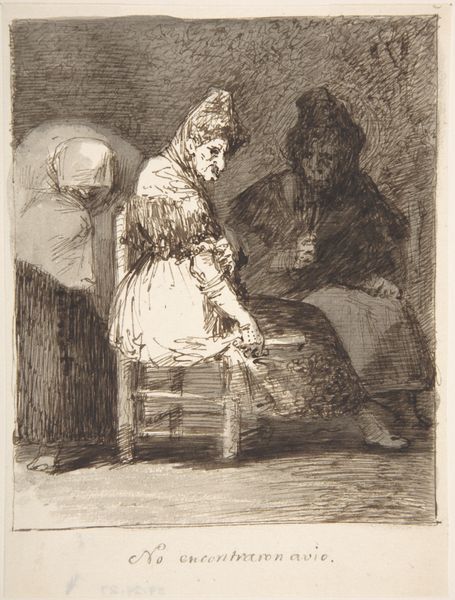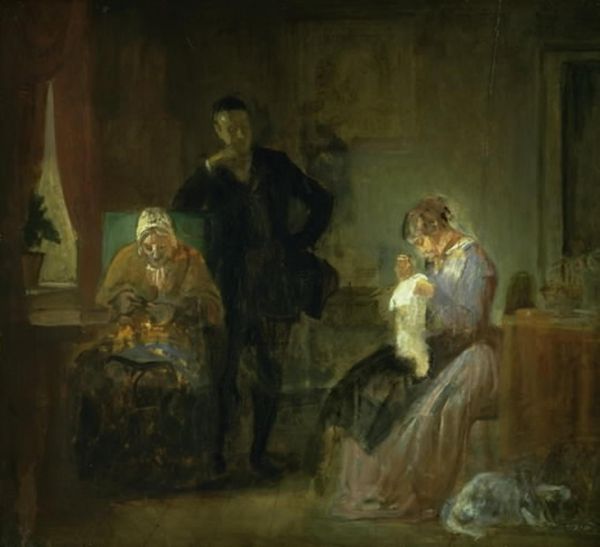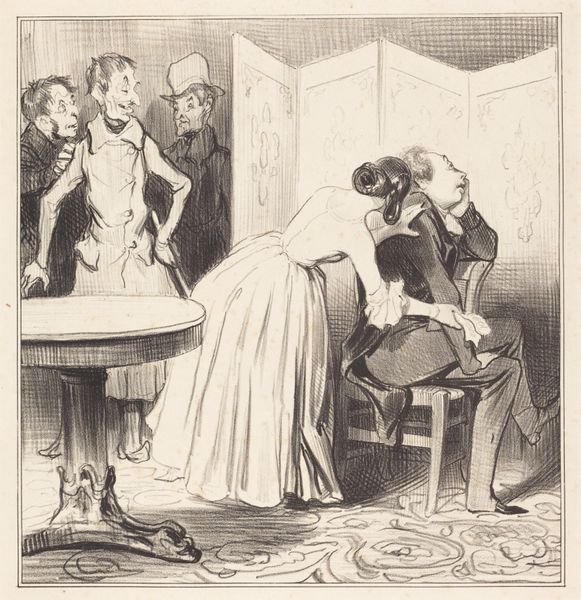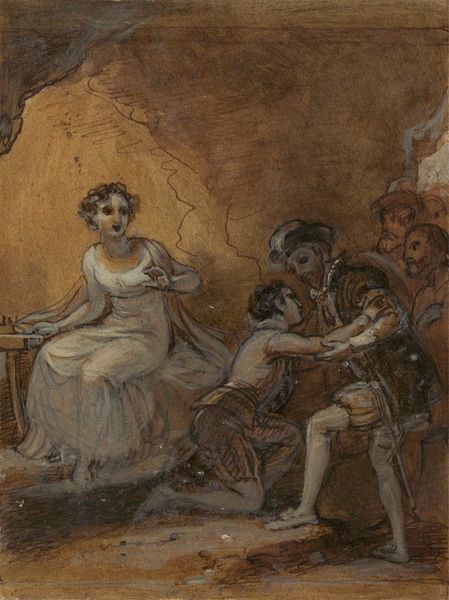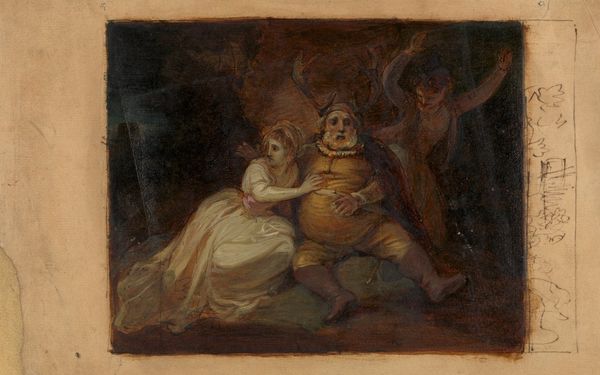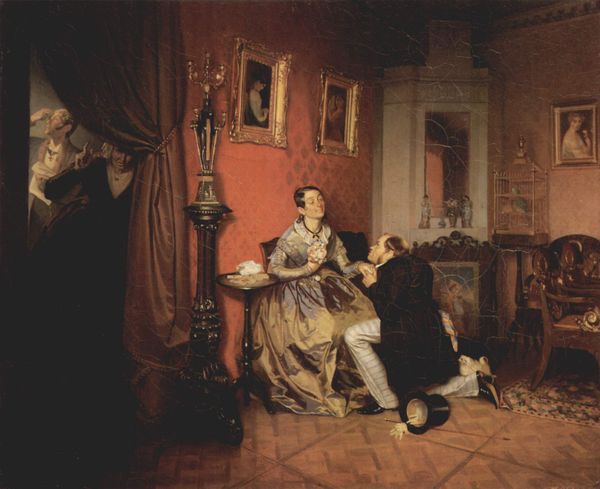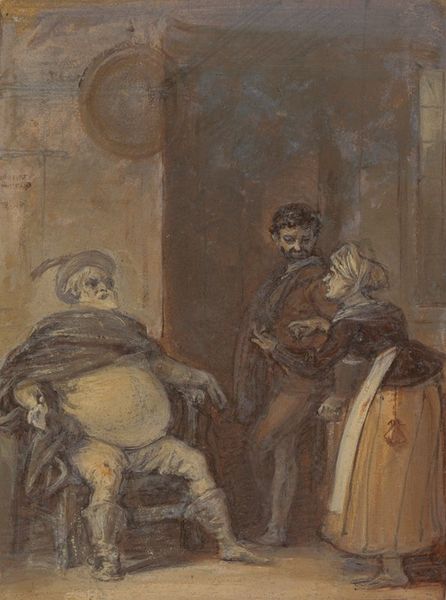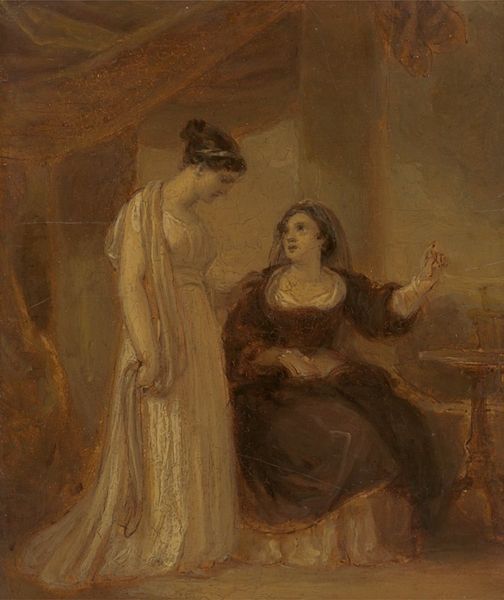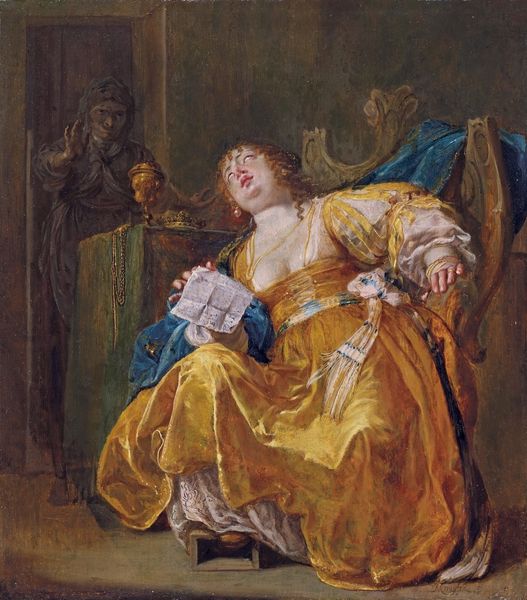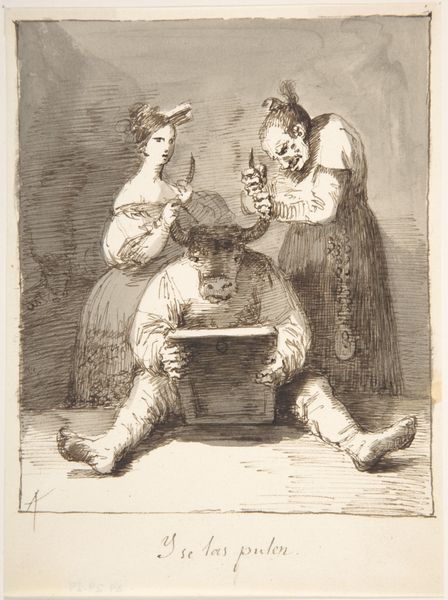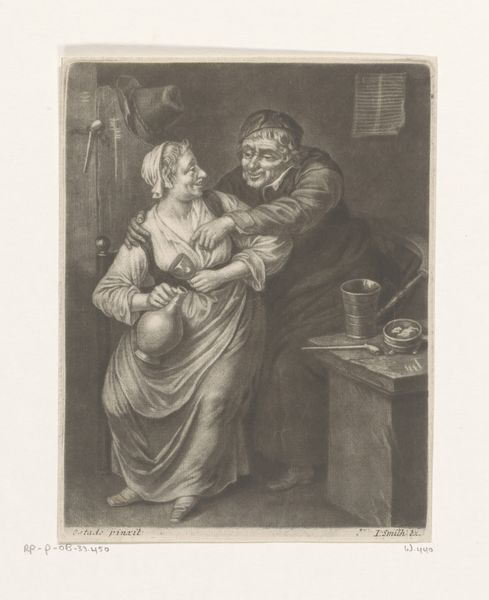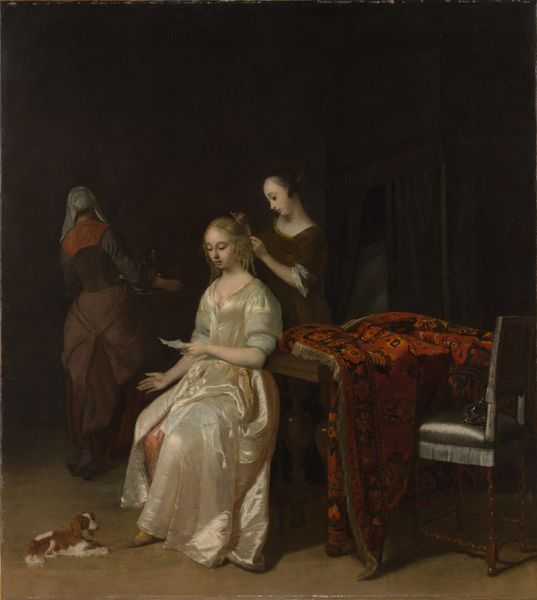
painting, oil-paint, sculpture
#
narrative-art
#
painting
#
oil-paint
#
charcoal drawing
#
figuration
#
form
#
sculpture
#
romanticism
#
history-painting
#
academic-art
Dimensions: 121.2 × 118.7 cm (47 3/4 × 46 3/4 in.)
Copyright: Public Domain
Editor: We're looking at Henry Fuseli's "Milton Dictating to His Daughter," painted in 1794 and held at The Art Institute of Chicago. It’s an oil painting, and it strikes me as intensely theatrical, with dramatic lighting that makes it seem almost like a stage play frozen in time. What draws your eye when you look at this piece? Art Historian: Ah, Fuseli! A creature of the night, wasn't he? This painting is a delicious plunge into the romantic agony so popular at the time. Milton, the blind poet, a tragic hero churning out masterpieces through sheer will and his daughter's pen. Look at how Fuseli stages it! Almost gothic, right? That cavernous room, the stark contrasts... He's really selling the drama, isn't he? It feels like the shadows themselves are conspiring. Do you get a sense of Milton as a visionary genius wrestling with his inner demons? Editor: I see what you mean. The lighting emphasizes the figures, especially Milton's almost ghostly pallor, but it feels a bit melancholic. There is a looming feeling that even creativity comes at a price. Is that something you pick up on? Art Historian: Precisely! It’s not a celebration of creation, it is more of an… elegy. The daughters, relegated to the sidelines, eternally copying, a bittersweet existence…Almost as if Milton's brilliance is simultaneously a blessing and a burden. Fuseli’s really poking at that nerve, don't you think? It's less about Milton the literary giant and more about the human cost of genius, perhaps. Editor: That's a darker interpretation than I initially had, but it resonates with the overall somber mood. Art Historian: Well, dear student, art should stir more questions than it answers, wouldn't you agree? Next time you read Milton, see if you detect some of Fuseli's romantic angst. It might just change how you understand the verse. Editor: That’s a fascinating connection! I will definitely do that. This has given me a whole new way to consider Fuseli and Milton's place in the Romantic era.
Comments
No comments
Be the first to comment and join the conversation on the ultimate creative platform.
